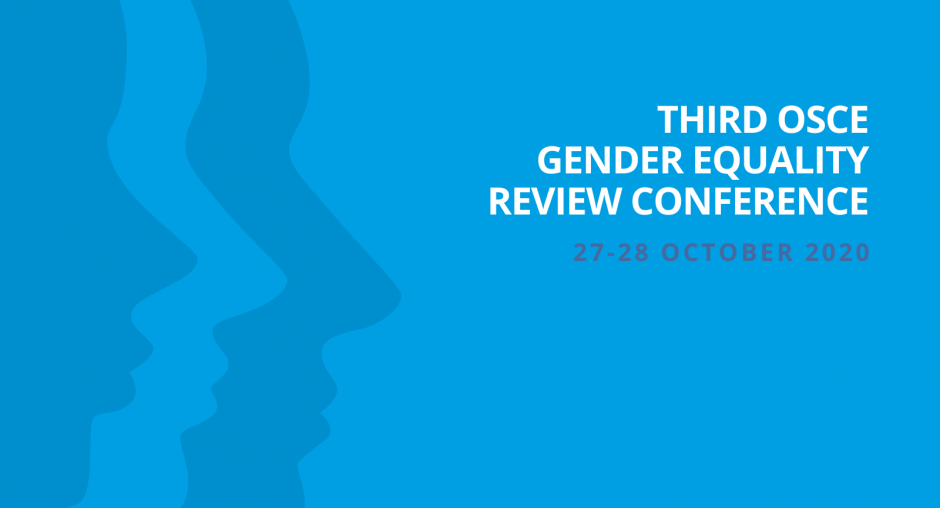Third OSCE Gender Equality Review Conference urges more systematic implementation of gender equality commitments across three dimensions of security

VIENNA, 28 October 2020 – OSCE participating States must do more to systematically implement their gender equality commitments across the politico-military, economic and environmental, and human dimensions of security, said participants of the third OSCE Gender Equality Review Conference, which closed today.
The two-day event was organized by Albania’s 2020 OSCE Chairmanship, the OSCE Secretariat, the OSCE Office for Democratic Institutions and Human Rights (ODIHR), and focused on assessing progress achieved by the OSCE participating States and the Organization itself in implementing the 2004 OSCE Action Plan for the Promotion of Gender Equality.
"I am alarmed by the ongoing attempts to challenge women’s and girls’ rights,” said Finland’s President Sauli Niinistö in a video message to participants. “We must make sure that gender equality goes forward, not backward."
Albania’s Minister of Health and Social Protection Ogerta Manastirliu stressed that gender equality in the OSCE region is “a cornerstone and a crucial feature to inclusive democracy and concept of comprehensive security.”
The high-level event was attended by over 300 participants representing OSCE participating States, Partners for Co-operation, executive structures, civil society, academia and the private sector. Discussions focused on areas such as women’s participation in political and public life, their participation in the security sector, and women´s economic empowerment. Participants also highlighted emerging issues that have an impact on the promotion of gender equality, such as digitalization and the increase in cyber violence against women and girls.
“Advancing women’s rights is a global challenge, not just one nation’s mandate. It requires co-operation and collaboration with our partners and allies. Together, we have the opportunity to change the futures of women and girls around the world,” said United States Ambassador Kelley Currie, Ambassador-at-Large for Global Women’s Issues.
Asa Regner, United Nations Assistant Secretary-General and Deputy Executive Director UN Women noted: “We need more political will, funding and leadership to implement women’s and girls’ rights and commitments to gender equality, including those enshrined in UN Security Council Resolution 1325 (on Women, Peace and Security), so that women have an equal say in the global peace and security agenda.”
Officer-in-Charge/Secretary General, Director of the OSCE Conflict Prevention Centre Tuula Yrjölä said: "I was glad to note that in certain areas, implementation of the Action Plan has accelerated in the last three years. But much work still needs to be done, if we are to effectively tackle the root causes of gender inequality."
“Democracy means the rule of the people, all people, but we can hardly refer to democracy when so many people are excluded from playing a role in public affairs,” said ODIHR’s First Deputy Director Katarzyna Gardapkhadze on behalf of the Office. “Women's representation in national parliaments has seen an improvement on previous years, but we still have a long way to go.”
